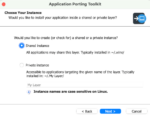Android forked out from Linux. And now, with Linux 3.3 (released on March 18), it has been sucked back into the mainline.
The description from KernelNewbies is succinct and clear:
For a long time, code from the Android project has not been merged back to the Linux repositories due to disagreement between developers from both projects. Fortunately, after several years, the differences are being ironed out. Various Android subsystems and features have already been merged, and more will follow in the future. This will make things easier for everybody, including the Android mod community, or Linux distributions that want to support Android programs.
Exactly right. Android has been runaway popular, but has been fraught with forking. First, Android itself forked from Linux. Then Android 3.0 (“Honeycomb”) became a tablet-only fork from the Android 2.3 (“Gingerbread”) codebase, which remained focused on smartphones.
But that’s not all. Barnes & Noble’s Color Nook e-reader was a fork from the Android 2.2 (“Froyo”) code, while Amazon’s Kindle Fire is a forked version of Gingerbread. Confused yet?
With the B&N and Amazon forks, there’s no guarantee that changes to Android will make it back into the Android codebase. But elsewhere we are seeing progress, as in last year’s announcement that Android 4.0 (“Ice Cream Sandwich”), at least Gingerbread and Honeycomb are coming back together into One Set of APIs to Rule Them All.
However, even Ice Cream Sandwich left Android split apart from embedded Linux. While that probably wasn’t a big deal for smartphone or tablet manufacturers—and certainly consumers wouldn’t care—this rift was not in the best interest of either Linux or Android.
A lot of important work is being done with Android. It’s a positive step that, with Linux 3.3, Android is going back into the fold. This was announced in December 2011 by Greg Kroah-Hartman, head of the Linux Driver Project, who wrote:
So hopefully, by the 3.3 kernel release, the majority of the Android code will be merged, but more work is still left to do to better integrate the kernel and userspace portions in ways that are more palatable to the rest of the kernel community. That will take longer, but I don’t foresee any major issues involved.
Not all the work is finished: There are small parts of Android that aren’t completely integrated into Linux 3.3. And certainly the extensions created by Amazon and B&N haven’t been contributed back to Linux, as you can see on the Android Mainlining Project page. But this is a move that is good for Linux and good for Android.
Alan Zeichick is editorial director of SD Times. Read his blog at ztrek.blogspot.com.






